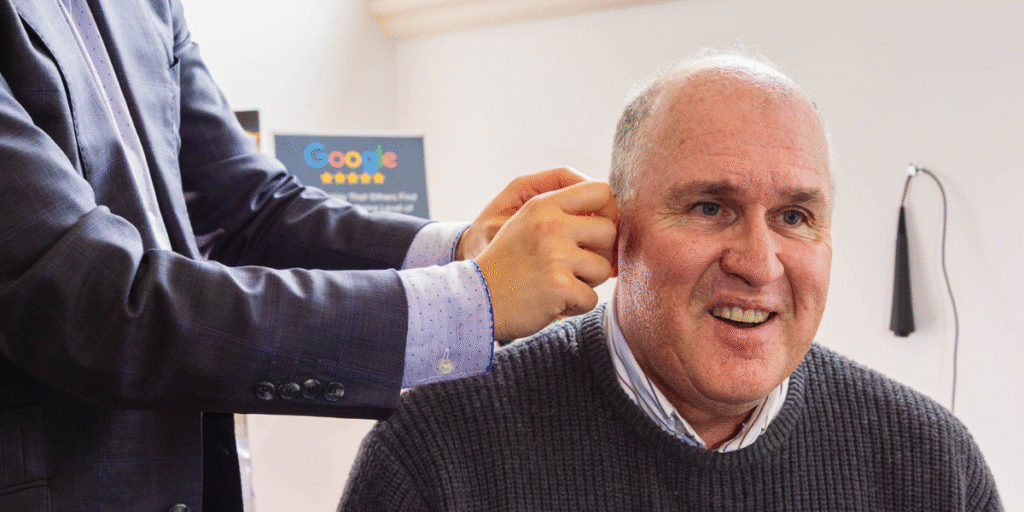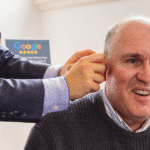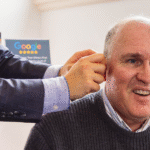Introduction
Tinnitus, often described as a ringing, buzzing, or hissing sound in the ears, affects millions of people worldwide, particularly the aging population. As retirees experience various health changes, understanding tinnitus and its relationship with hearing loss becomes critical in managing their quality of life. This article delves into the nature of tinnitus, its connection to hearing loss, recent research findings, and lifestyle considerations that can alleviate its effects.
What is Tinnitus?
Definition and Symptoms
Tinnitus is not an illness but a symptom that indicates an underlying condition, often related to auditory issues. Patients may perceive sounds even when no external noise is present. Common symptoms include persistent ringing, buzzing, hissing, or clicking noises in one or both ears. The experience can vary in intensity, sometimes leading to difficulty in concentrating, sleep disturbances, and emotional distress.
These auditory perceptions can be intermittent or constant, and their severity can fluctuate, making it essential for individuals to seek medical advice for proper diagnosis and management. Understanding the nature of tinnitus is the first step in addressing its impact on daily life.
Types of Tinnitus
Tinnitus is categorized into two main types: subjective and objective. Subjective tinnitus is the most common form, where only the patient can hear the sounds. Objective tinnitus, on the other hand, can be detected by a healthcare professional using specialized instruments; this type is often associated with physical issues, such as blood flow problems or muscle contractions.
Additionally, tinnitus can be classified based on its specific characteristics: tonal (a steady tone), pulsatile (synchronized with heartbeat), or intermittent (comes and goes). Knowing the type of tinnitus can aid in determining the appropriate treatment options.
Common Causes
Several factors contribute to the onset of tinnitus, including exposure to loud noises, age-related hearing loss, ear infections, and conditions such as Meniere’s disease. Other potential causes include earwax buildup, neurological disorders, and side effects from certain medications. Understanding these causes is vital for retirees, as many experience age-related auditory decline and may inadvertently expose themselves to harmful sound levels.
It is vital for retirees experiencing hearing loss to recognise the potential for concurrent tinnitus development and seek timely evaluations.
Moreover, psychological factors such as stress, anxiety, and depression can exacerbate tinnitus symptoms. Recognizing these interrelated components allows for a comprehensive approach to treatment and management.
Not sure what's going on with your hearing?
Book an appointment with NeuroHearing to get clear answers and a personalised plan.
The Connection Between Tinnitus and Hearing Loss
Understanding the link between hearing loss and tinnitus is essential, as effective treatment of hearing loss may alleviate tinnitus symptoms for many retirees.
Recent findings suggest that the majority of patients suffering from tinnitus also show signs of hearing loss, reinforcing the need for integrated treatment approaches.
How Hearing Loss Can Lead to Tinnitus
Research indicates a strong correlation between hearing loss and tinnitus, particularly among older adults. When hearing loss occurs, the brain may compensate by amplifying internal sounds, which can manifest as tinnitus. This phenomenon highlights the importance of maintaining auditory health, especially as age-related changes become prevalent.
Many individuals experiencing hearing loss also report symptoms of tinnitus, highlighting the intertwined nature of these conditions. Addressing hearing loss can often lead to a reduction in tinnitus symptoms.
This connection suggests that addressing hearing loss through rehabilitation can help reduce the perception of tinnitus. For retirees, recognizing this link may encourage them to prioritize regular hearing assessments and seek appropriate interventions for hearing loss.
Shared Risk Factors
Several risk factors contribute to both tinnitus and hearing loss, including age, exposure to loud noises, and certain medical conditions. Age is a significant factor, as the likelihood of developing hearing loss increases with advancing years, often leading to a higher prevalence of tinnitus. Furthermore, lifestyle choices such as smoking, alcohol consumption, and poor diet can exacerbate these conditions.
By understanding these shared risk factors, retirees can take proactive steps to mitigate their risk. Regular check-ups, adopting a healthier lifestyle, and being mindful of environmental noise levels can contribute to better auditory health.
By understanding the interplay between hearing loss and tinnitus, retirees can make informed decisions regarding their auditory health.
Recent Research Findings
Studies on Tinnitus Prevalence in Older Adults
Recent studies have highlighted the increasing prevalence of tinnitus among older adults, with research suggesting that approximately 30% to 40% of retirees experience this condition. Investigations into the demographics of tinnitus sufferers reveal that it is more common in men than women, especially those who have a history of military service or occupations involving loud noises.
Moreover, studies indicate that tinnitus is often underreported, leading to an underestimation of its true prevalence. By raising awareness through education and research, healthcare providers can better address the needs of this population and improve management strategies.
Innovative Treatments and Therapies
Recent advances in tinnitus treatment have introduced a variety of innovative therapies. Cognitive Behavioral Therapy (CBT) has shown promise in helping individuals manage the psychological effects of tinnitus, reducing anxiety and depression associated with the condition. Additionally, sound therapy, which involves the use of background sounds to mask tinnitus, has gained popularity among those seeking relief.
Furthermore, ongoing research into neuromodulation techniques, such as transcranial magnetic stimulation (TMS), aims to rewire the brain’s response to tinnitus signals. These developments offer hope for retirees looking for effective solutions to
manage their tinnitus symptoms.
Not sure what's going on with your hearing?
Book an appointment with NeuroHearing to get clear answers and a personalised plan.
The Role of Hearing Aids
Hearing aids play a crucial role in the management of tinnitus, particularly for those with hearing loss. Many modern hearing aids come equipped with features that help mask tinnitus sounds while amplifying external sounds, thus providing a dual benefit. By improving overall hearing ability, these devices can significantly lessen the perception of tinnitus.
Moreover, audiologists often recommend hearing aids as a first-line treatment for individuals experiencing both hearing loss and tinnitus. This integrated approach enhances communication and social engagement, vital for retirees who may struggle with isolation due to auditory issues, making tinnitus treatment with hearing aids an effective solution.
Lifestyle Considerations
Managing Stress and Its Impact on Tinnitus
Stress management is essential for individuals with tinnitus, as high stress levels can exacerbate symptoms. Techniques such as mindfulness, meditation, and yoga have been shown to reduce stress and improve overall well-being. Retirees are encouraged to incorporate these practices into their daily routines as a means of enhancing their auditory health.
Additionally, establishing a supportive social network can provide emotional relief. Engaging with friends and family, or participating in support groups, can help mitigate feelings of isolation and anxiety often associated with tinnitus. The psychological benefits of social interaction cannot be overstated, particularly for retirees navigating the challenges of hearing issues.
Recognising that hearing loss can worsen the perception of tinnitus is important for developing effective management strategies.
The Importance of Hearing Protection
As many retirees engage in activities that may expose them to loud noises—such as attending concerts, gardening with power tools, or traveling—prioritizing hearing protection is critical. Wearing earplugs or noise-canceling headphones can significantly reduce the risk of further auditory damage. Awareness of safe sound levels is also crucial; environments with sounds exceeding 85 decibels can be harmful over prolonged exposure.
Moreover, educating oneself about the potential risks associated with various activities can empower retirees to make informed decisions about their auditory health. Prevention is key to maintaining hearing function and minimizing the likelihood of developing tinnitus.
Conclusion
Summary of Key Points
Tinnitus is a common yet often misunderstood condition, particularly among retirees. Understanding its nature, the connection with hearing loss, and the latest research findings can empower individuals to seek appropriate help. With emerging therapies and technologies, as well as lifestyle adjustments, it is possible to manage tinnitus effectively.
Retirees are encouraged to prioritize their auditory health through regular assessments, adoption of healthy habits, and proactive engagement with healthcare providers. Awareness and education are fundamental in addressing the challenges associated with tinnitus.
Encouragement for Ongoing Research and Awareness
As research continues to evolve, it is essential for retirees to remain informed about new findings and treatment options. By staying engaged in their health, they can advocate for themselves and connect with communities that provide support and resources. Tinnitus doesn’t have to define one’s quality of life; with the right understanding and strategies, it can be managed effectively.
Individuals struggling with hearing loss should actively monitor their tinnitus symptoms, as changes may signal shifts in their auditory health.
FAQs
What are the most common causes of tinnitus?
The most common causes of tinnitus include age-related hearing loss, exposure to loud noises, ear infections, and certain medications.
Can tinnitus be cured?
While there is currently no definitive cure for tinnitus, various treatments, including sound therapy and cognitive behavioral therapy, can help manage symptoms effectively.
Is tinnitus serious?
Tinnitus itself is not usually considered a serious health issue, but it can significantly affect quality of life, leading to stress, anxiety, and sleep disturbances.
What lifestyle changes can help manage tinnitus?
Managing stress through mindfulness, protecting hearing by avoiding loud noises, and maintaining a healthy diet can help alleviate tinnitus symptoms.
When should I see a doctor about my tinnitus?
If tinnitus is persistent, worsening, or accompanied by other symptoms like hearing loss or dizziness, it is essential to consult a healthcare professional.








